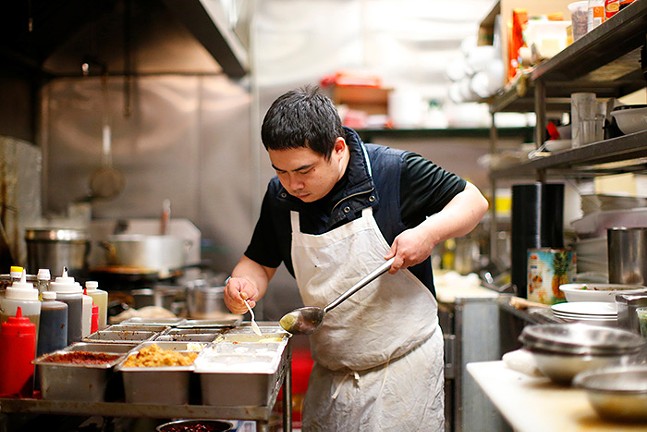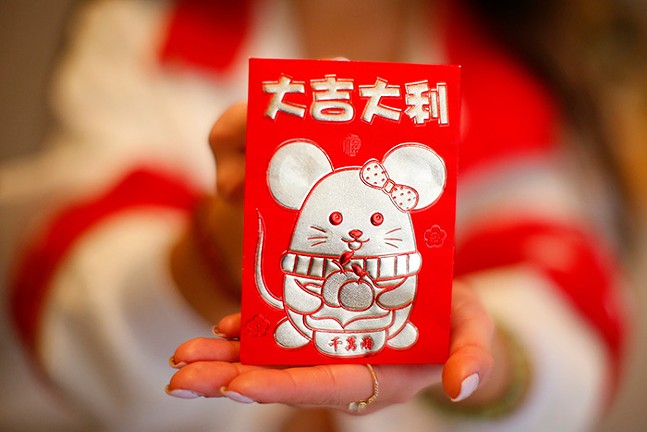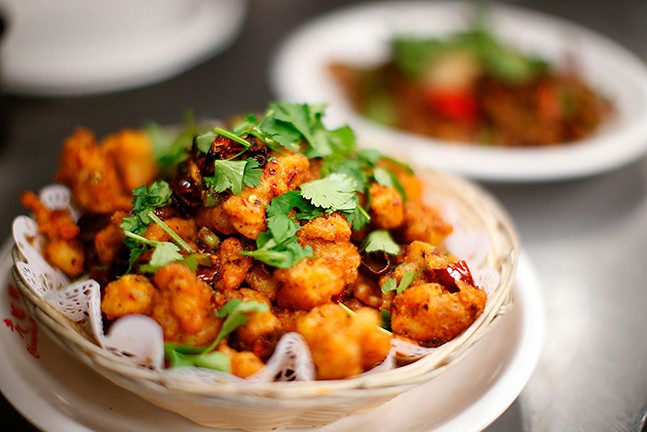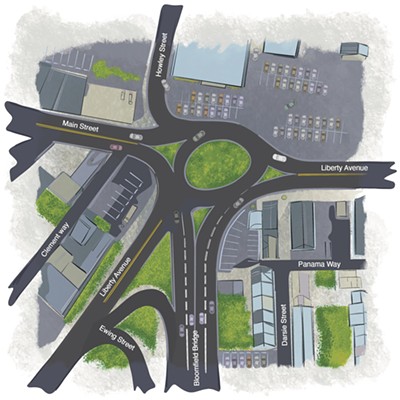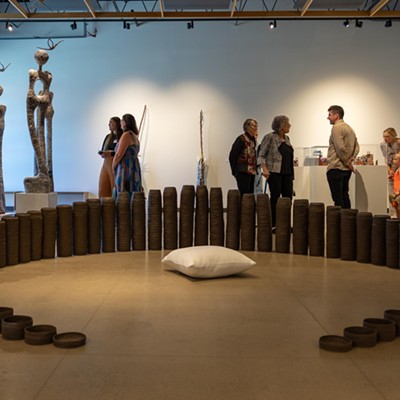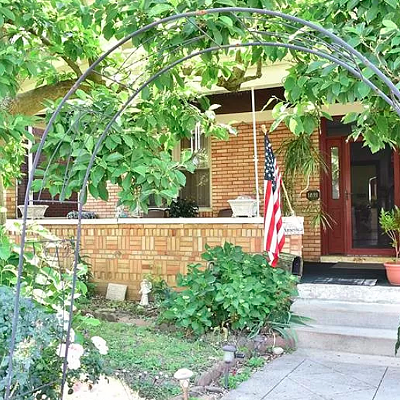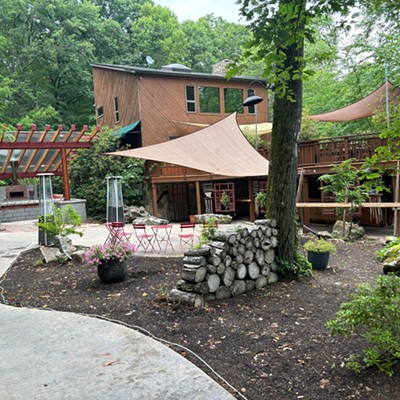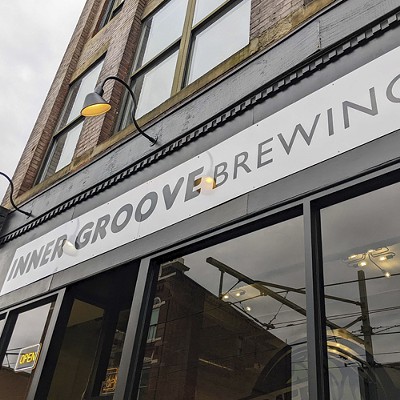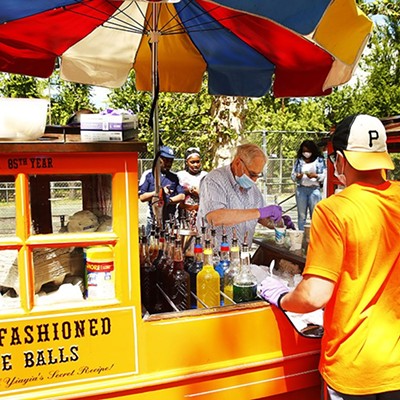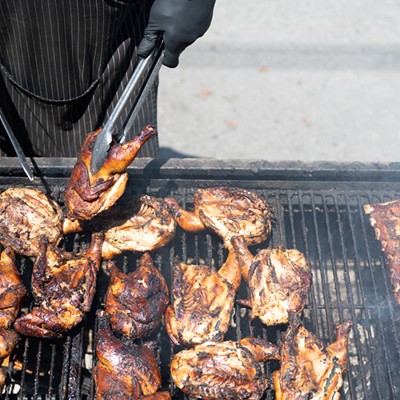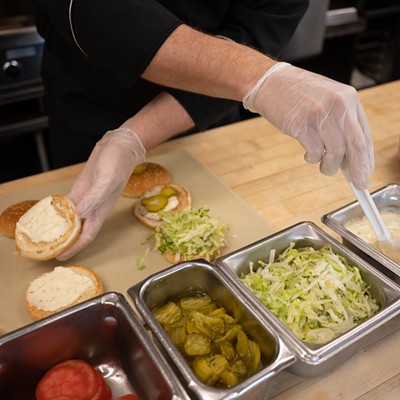
Celebrations for the Lunar New Year vary across Asian cultures — from the Bhutanese and Tibetan Losar to the Vietnamese Tết to the Chinese Spring Festival (chūnjié) — but many traditions involve spending time with one’s community and family. COVID-19 safety precautions preclude the typical banquets and communal gatherings, but people and organizations in Pittsburgh are still finding ways to celebrate and connect.
While the Lunar New Year parade, hosted by the Pittsburgh chapter of the Organization of Chinese Americans, will not occur this year, the OCA is teaming up with local restaurants to create special meal sets of symbolic, traditional foods for groups of 4-8 people. These special meal sets will be available for the 15 days of the spring festival, starting on Thu., Feb. 11, and a percentage of the profits — with a match from the OCA — will go towards those in the community adversely affected by COVID-19, particularly those who did not qualify for stimulus money due to residency status.
“That was one thought, was how can we still help in this way and still leverage the opportunity that this occasion was going to give us,” says Marian Lien, president of the Pittsburgh chapter of the OCA. “Remember, if [restaurants] go, what are we going to do once it all lifts?”
At Chengdu Gourmet, owner and chef Wei Zhu starts preparing food a month before the spring festival. It takes a month to prepare and dry the pork and sausage — usually 600 pounds of it — and a week or two to roast the duck. This year, however, he’s only preparing 200 pounds of pork and sausage.
“We usually have the special Lunar New Year combination, but nobody ordered that this year,” says Zhu, through the aid of his translator and daughter, Yana Zhu, although he adds that customers can still call in special orders for the new year.
Taiwanese Bistro Cafe 33 also offers specials for the Lunar New Year — as well as other occasions — which owner Jenny Tao encourages people to call in to preorder so that she can buy ingredients fresh the day of pickup or delivery.
In non-pandemic times, Cafe 33 hosts a small party for old friends and regular customers, followed by a smaller party for the staff. Lion dancers from the Squirrel Hill parade would also visit, and the restaurant staff would give them red envelopes (hóngbāo) and good wishes for the new year (zhù fú nǐ). But the parade is canceled this year, and to comply with gathering restrictions related to the pandemic, Cafe 33 will only have the smaller staff party this year.
Zhu of Chengdu Gourmet will also have a small celebration for his staff with traditional foods such as lobster, whole fish, duck, beef, and sausage, as well as baijiu, a Chinese liquor and Zhu’s favorite drinks. For restaurant staff, these parties can stand in for longer or more leisurely celebrations typical for the Lunar New Year.
“The next day we have work, get up and get ready to work — that’s it. Our life is not like you, hanging out [the] whole weekend or go out of town to go somewhere, we can’t,” says Tao. “We celebrate like this.”
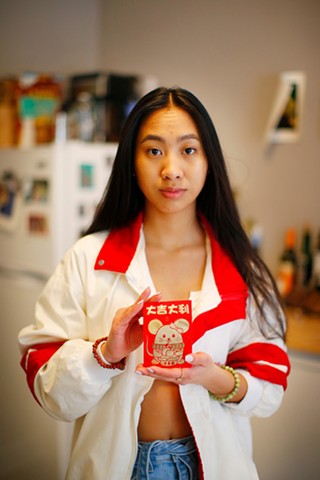
At the celebrations from her childhood, people would sing, perform dances and skits, exchange red envelopes (lì xì), and share traditional foods such as egg rolls, sticky rice, and bánh tét — glutinous rice rolls wrapped in banana leaves and stuffed with pork and mung bean, or bananas for a vegetarian option. Red lanterns, firecrackers, and bamboo with red envelopes tied to the branches decorated houses and buildings, and her mother kept a yellow Mai tree, which blooms with bright yellow flowers around the Lunar New Year.
But between work, research, and filling out school applications, Truong hasn’t had time to decorate this year. She now lives a state away from her extended family and half a country away from her parents and sister, but she plans to call both sides of her family to share in their celebrations and use this time as an extension of the emotional labor she feels that many have done throughout COVID-19.
“Lunar New Year, I’m always like, I must properly call [my family] and give them wishes for the new year, so I’ll be doing that,” says Truong. “I feel like everyone I’ve talked to has done a lot of emotional work and a lot of introspection during this time, so I’m going to be very, very mindful of this Lunar New Year.”
Tyler Phan, a professor of anthropology at the University of Pittsburgh, is also mindful of the new year, and excited for the rare coincidence of the Chinese, Vietnamese, Bhutanese, and Tibetan new years all occurring in 2021 at the same time. With ethnographic roots in Bhutan, Nepal, and Vietnam, Phan celebrates Losar and Tết, sometimes traveling to New York to participate in Losar celebrations with traditional and contemporary Tibetan music and food.
While he can’t travel this year, he still looks forward to calling his father and celebrating the different cultures of the holiday with his son. He plans on making a vegan bánh tét, along with tsampa, a Tibetan mixture of barley flour and puja, Tibetan butter tea, giving his son a red envelope, and doing an astrological reading for his son.
“It’s the hard thing for Asians in general, because we’re so familial-based, so when you don’t have that, it’s a big thing that’s taken away from us. But at the same time, you have to be mindful of your family and their safety,” says Phan. “And that to me is the utmost prosperity — being thankful for what you have and the family that you have around you.”
Places to celebrate Lunar New Year
To celebrate the Lunar New Year and get a taste of traditional Chinese Lunar New Year foods, order a meal set from a local Asian restaurant. These menus, available on the Organization of Chinese Americans’ website (ocapghpa.org) and Facebook page (facebook.com/ocapghpa), were organized in conjunction with the OCA and offer meal sets of a variety of dishes for groups of four or eight. Restaurants have been hit hard by COVID, and with anti-Asian rhetoric surrounding the virus, Asian cuisine restaurants have felt a disproportionate impact. Many restaurant workers have been laid off, and those who do not have green cards or citizenship have not been able to benefit from stimulus packages. All orders from these menus will not only support these local businesses, but also help local Asian and Pacific Islander restaurant workers who have been impacted by COVID through a donation of some of the proceeds with a match from the OCA. Diners are recommended to call to place their orders for the holiday.Little Asia
301 S. Craig St. #2, North Oakland. pittsburghlittleasia.com. 412-622-0133
Szechuan Spice
5700 Centre Ave., Shadyside. szechuanspicepa.com. 412-363-8888
Ting’s Kitchen
3200 McIntyre Square Drive, Ross. tingskitchen.com. 412-364-9933
Chengdu Gourmet
5840 Forward Ave., Squirrel Hill. chengdugourmetpittsburgh.com. 412-521-2088
Everyday Noodles
5875 Forbes Ave., Squirrel Hill. everydaynoodles.net. 412-421-6668
Sichuan Gourmet
1900 Murray Ave., Squirrel Hill. sichuan-gourmet.com. 412-521-1313
Also offering Lunar New Year specials:
Taiwanese Bistro Cafe 33
1711 Shady Ave., Squirrel Hill. twcafe33.com. 412-421-2717

